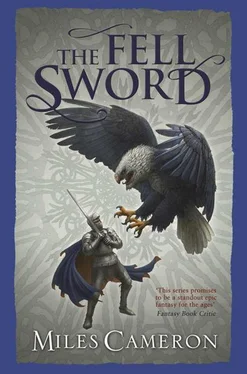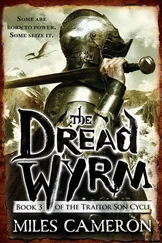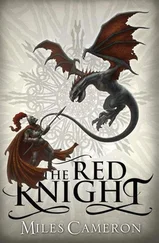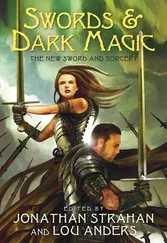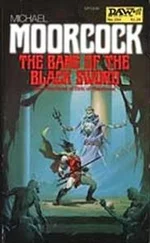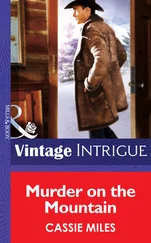Miles Cameron - The Fell Sword
Здесь есть возможность читать онлайн «Miles Cameron - The Fell Sword» весь текст электронной книги совершенно бесплатно (целиком полную версию без сокращений). В некоторых случаях можно слушать аудио, скачать через торрент в формате fb2 и присутствует краткое содержание. Год выпуска: 2014, Издательство: Orion, Жанр: Фэнтези, на английском языке. Описание произведения, (предисловие) а так же отзывы посетителей доступны на портале библиотеки ЛибКат.
- Название:The Fell Sword
- Автор:
- Издательство:Orion
- Жанр:
- Год:2014
- ISBN:нет данных
- Рейтинг книги:5 / 5. Голосов: 1
-
Избранное:Добавить в избранное
- Отзывы:
-
Ваша оценка:
- 100
- 1
- 2
- 3
- 4
- 5
The Fell Sword: краткое содержание, описание и аннотация
Предлагаем к чтению аннотацию, описание, краткое содержание или предисловие (зависит от того, что написал сам автор книги «The Fell Sword»). Если вы не нашли необходимую информацию о книге — напишите в комментариях, мы постараемся отыскать её.
The Fell Sword — читать онлайн бесплатно полную книгу (весь текст) целиком
Ниже представлен текст книги, разбитый по страницам. Система сохранения места последней прочитанной страницы, позволяет с удобством читать онлайн бесплатно книгу «The Fell Sword», без необходимости каждый раз заново искать на чём Вы остановились. Поставьте закладку, и сможете в любой момент перейти на страницу, на которой закончили чтение.
Интервал:
Закладка:
Behind her stood twenty more women. Every one of them was a widow. Their men had died defending Albinkirk – or failing to defend it, or the smaller towns to the south and west of Albinkirk – Hawkshead and Kentmere and Southford and the Sawreys.
They gave a collective sigh that was close to keening.
Helewise settled her face, and gathered her pack. She smiled at her daughter, who smiled back with all the solid cheerfulness of age nineteen.
‘No time like the present,’ Helewise said. ‘It’s the work you don’t start that never gets done.’
Phillippa, her daughter, gave the roll of her head that was the dread of many a mother. ‘As you say, Momma,’ she managed.
Her mother turned. ‘Would you rather give it up?’ she asked. ‘A year’s work, or two, and we’ll be back on our feet. Or we can go be poor relations to the Cuthberts in Lorica, and you’ll become someone’s spinster aunt.’
Phillippa looked at her feet. They were quite pretty, as feet go, and the laces on her shoes had neat bronze points that glittered when she walked. She smiled at her feet. ‘I don’t think I’d like that much,’ she said, thinking of some of the boys in Lorica. ‘And we’re here now. So let’s get to work.’
The next hours were almost as bad as the hours in which they’d fled, while old Ser Hubert rallied the men of the farm to fight the tide of boggles. Phillippa remembered him a sour old man who couldn’t even flirt, but he’d waded into the monsters with an axe and held the road. She remembered looking back and watching him as the axe rose and fell.
Her views on what might be useful in a man had undergone what her mother would call a ‘profound change’.
Jenny Rose, one of the few girls her own age, found the first bodies, and she didn’t scream. These women’s screams were about spent. But other women gathered around her and patted her hands, and old crone Gwyn gave her a cup of elderberry wine, and then they all began to pull the pile of bones and gristle apart. The boggles went onto a pile to burn. The others-
They were husbands and brothers and sons. And, in two cases, daughters. They’d all been eaten – flensed clean. In some ways, that made the task easier. Phillippa hated clearing dead mice out of traps – so squishy, still warm. This wasn’t as bad, even though they were the bones of people she’d known. At least one set of bones belonged to a boy she’d kissed, and a little more.
Stripped of their flesh, they all looked the same.
They found a second pile of the dead later in the day, in the apple orchard. By then, Phillippa was more hardened to it. Or so she thought, until Mary Rose spat and said, ‘These is midden heaps. ’ She spat again, not in contempt, but in her effort not to retch.
Phillippa and Mary and Jenny were the youngest women, so the three of them were given most of the heavy work. They were all pretty fair at using the shovels, and Phillippa was learning to cut with the axe, although using it raised calluses on her hands that would not please the boys in Lorica. If she ever went back to Lorica.
When the sun was past midday, her mother rang the bell – the monsters didn’t steal the really valuable things, the way reivers and skinners would do. So she went down the hill from the apple orchard. There was an intact rain-barrel under the eaves of the manor house, and she washed her hands.
Jenny Rose smiled. ‘You have nice hands, Phillippa.’
Phillippa smiled. ‘Thanks, Jen. Though I’m afraid they’re going to get worse before they get better.’
Mary Rose paused to dip her own hands. ‘What were the boys like in Lorica?’ she asked, bold as brass.
‘Mary Rose!’ said her sister.
‘Much like boys everywhere, I expect,’ said a new voice.
Standing by the corner of the house was a tall, slim woman in a nun’s black habit with the cross of Saint Thomas on it. She smiled at the girls. ‘Handsome, funny, angry, preening, stupid, vain, and wonderful,’ the nun continued. ‘Are you Phillippa? Your mother was worried.’
The three girls curtsied together. Jenny and Mary made a stiff obeisance, the kind that the village priest taught you. Phillippa sank down, back straight and legs apparently boneless. ‘Sister?’ she asked.
The nun had a beautiful smile. ‘Come,’ she said.
Jenny whispered, ‘Teach me to do that.’
Supper was ham and cheese and good bread that must have come from the fortress with the nun. The mill at Gracwaite cross was a burned-out ruin, and none of the towns around Albinkirk had had bread – fresh bread – in weeks.
There was a fine palfrey in the yard, and a mule.
The nun was a curiosity – neither particularly well bred, nor ill-bred. She was somehow too robust to be a noblewoman – her brown hair was rich but unruly, her lips were a little too lush, and her eyes had more of command than languor. But Phillippa admired her immensely.
The nun had a tonic effect on the gathered women. She seemed oblivious to the shadow over all of them, and she had brought seeds for late planting. The mule was to stay as a plough animal until the fortress sent oxen.
‘I gather that you have found quite a few dead,’ she said. She said it quite plainly, without the embellishment of false sentiment.
‘Almost all the men,’ Helewise noted. ‘We haven’t found Ser Hubert. I’d expect to know him. He had his brigandine on.’
‘I saw him fighting,’ Phillippa said, without meaning to. ‘I saw his axe. I never liked him. I wasn’t nice to him.’ Her voice cracked. ‘He died for us.’
The nun nodded. ‘Hard times change us all, in ways that are far beyond our little knowledge,’ she said. ‘They teach us things about ourselves.’ She frowned.
Then she looked up. ‘Let us pray,’ she said. When she was done, they ate in relative silence. And when she’d finished her share, the nun rose. ‘When we’ve washed up, let’s go bury the dead and say the service,’ she said.
Phillippa, who had never been a great one for religion, was surprised by how moved she was by the nun’s quiet prayers, her open-faced plea to heaven for the souls of the departed, and by her homily – on how deeply they’d all been touched, and how they must trust in God.
When the nun was finished, she smiled and kissed each woman on both cheeks. Then she walked to the pile of dead boggles. They didn’t smell, but they didn’t rot as men do – their leathery hides and the heavy cartilage of their ‘shells’ took time to return to the soil.
‘God made the Wild, as surely as he made Man,’ said the nun. ‘Although these were our enemies, we pray you take them to you.’
The nun raised her face to heaven, closed her eyes, and made the sign of the cross; the entire pile turned to sand.
Twenty women lost the ability to breathe for a moment.
The nun turned to Helewise. ‘The afternoon is yet young. Now, about the seed?’
Ser John had fished for too long.
He caught and killed more than ten pounds of trout – perhaps much more than ten pounds – and the fishing was superb, at least in part because most of the other fishermen were dead. He didn’t want to stop, but as the sun began to sink in the west he made himself pull his line off the water. He was a mile downstream from where he’d started – a mile from his horse, and, he suddenly realised, a mile from his spear.
Feeling more foolish than afraid, he plucked his harvest from the water and started back along the bank. The late summer sunlight was still strong and red, and the Wild had seldom looked less threatening but Ser John was too old in the ways of the Wild to be fooled by it, though. He moved quickly, making as little noise as he could.
He’d travelled a quarter of the distance back to his horse when something alerted him – a movement, perhaps, or a sound. He froze, and then, very slowly, lowered himself to the ground.
Читать дальшеИнтервал:
Закладка:
Похожие книги на «The Fell Sword»
Представляем Вашему вниманию похожие книги на «The Fell Sword» списком для выбора. Мы отобрали схожую по названию и смыслу литературу в надежде предоставить читателям больше вариантов отыскать новые, интересные, ещё непрочитанные произведения.
Обсуждение, отзывы о книге «The Fell Sword» и просто собственные мнения читателей. Оставьте ваши комментарии, напишите, что Вы думаете о произведении, его смысле или главных героях. Укажите что конкретно понравилось, а что нет, и почему Вы так считаете.
